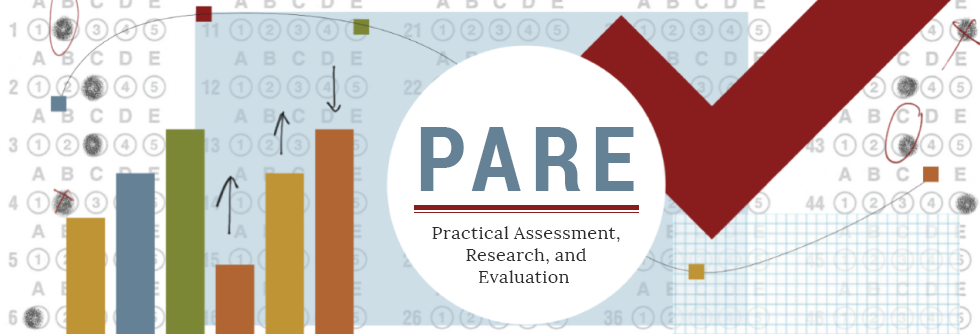Generalizability Theory in R
Abstract
Generalizability theory is a modern, powerful, and broad framework used to assess the reliability, or dependability, of measurements. While there exist classic works that explain the basic concepts and mathematical foundations of the method, there is currently a lack of resources addressing computational resources for those researchers wishing to apply generalizability in practice. This tutorial illustrates the efficient application of generalizability theory in the statistical software environment R, including data formatting, computing key quantities, and tabulating and visualizing results for four different study designs. The tutorial is entirely self-contained, as it includes R code to generate the example data thus allowing the reader to reproduce all computations, tables, and plots. Accessed 1,271 times on https://pareonline.net from July 17, 2019 to December 31, 2019. For downloads from January 1, 2020 forward, please click on the PlumX Metrics link to the right.
Keywords: Test Construction
How to Cite:
Huebner, A. & Lucht, M., (2019) “Generalizability Theory in R”, Practical Assessment, Research, and Evaluation 24(1): 5. doi: https://doi.org/10.7275/5065-gc10
Downloads:
Download PDF
View PDF
2363 Views
3175 Downloads
